Almost as soon as he entered the oval office, Taft began reforming his predecessors' foreign policies. It seemed to Taft that the U.S. had been extending loans for nearly a century to Latin American countries and that almost none of that money had ever been repaid. As far as Taft was concerned, it made little sense for the United States government to continue with the practice. Also, the U.S. had frequently intervened militarily when those loans, bonds and other financial "incentives" were not paid back. In practical terms, this approach amounted to propping up a dictatorial regime that was willing to be economically and militarily controlled by Washington. As "un-American" as they might sound, these policies had remained in effect during both the McKinley and Roosevelt eras under the direction of Secretary of War Elihu Root.
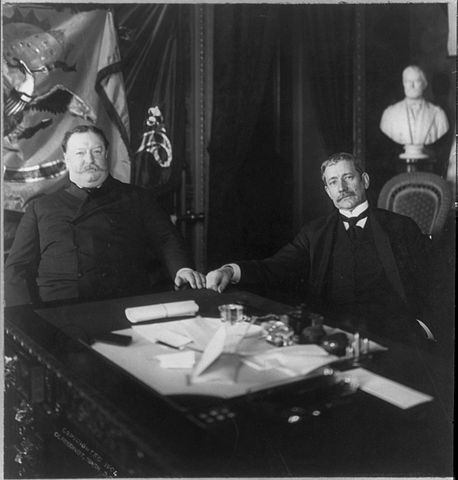
whose position he assumed during the Roosevelt administration
Taft’s opponents in the U.S. Senate were the first to use the term "dollar diplomacy" to describe his reliance on financial resources to exert control over foreign markets and governments. Taft's idea was to gain influence not by extending substantial amounts of money as U.S. loans, but by introducing U.S. businesses more widely into Latin America and the Caribbean in an effort to stimulate the local economy. Taft was also very interested in expanding U.S. commercial influence in China--supporting American business interests there, but dollar diplomacy also meant preventing competitive European powers from operating in Latin American. From the viewpoint of nations like England, France and Germany, Americans seemed to have forgotten that Europe had done business with Latin America long before the United States became a nation.
Spain and France continued to demand significant amounts of payment from their former colonies in Latin America for the infrastructure they had installed. When these countries could not pay the money demanded, the Europeans demanded the right to develop and control important businesses, such as the railroads. Germany, on the other hand, claimed that Taft's dollar diplomacy amounted to the use of monopolies on a very large scale and was therefore hypocritical. The Europeans also felt that the United States' attitude towards Latin American nations restricted those countries' cultural development. In fact, dollar diplomacy was not that different from the European colonialists, in terms of military and commercial involvement.

Taft's economically-driven foreign policies were not as popular among conservatives as Roosevelt's direct military interventions had been. Furthermore, Taft's opponents feared that much of his policy was being devised during meetings held at his summer home in Beverly, Massachusetts. Even members of the public found themselves wondering about those closest to the president during his extensive vacations. The caricature below portrays Taft's staff at his summer residence as a defacto "cabinet."
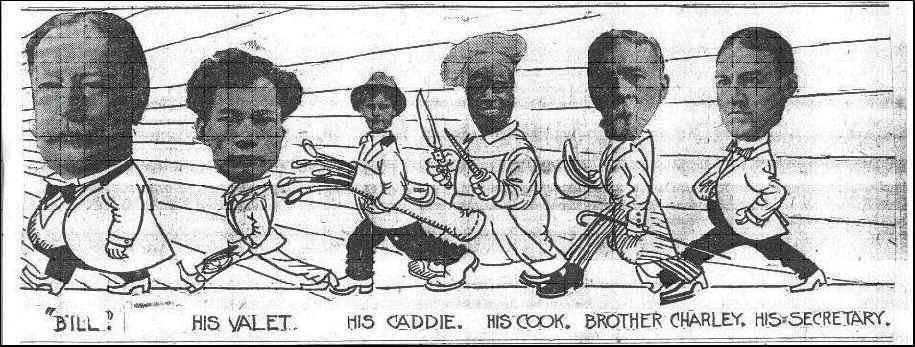
In general, political cartoons published during Taft's era represent the ways in which many Americans reacted to his presidency. Study each of the cartoons below, and try to identify what they suggest about Taft as president.
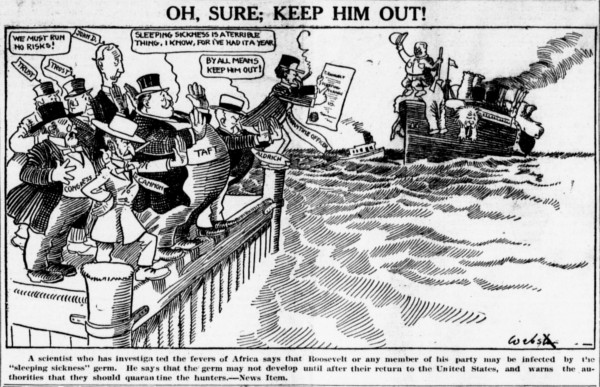
What does this cartoon say about Taft's relationship with Roosevelt?
Taft has not actively followed through on Roosevelt's anti-trust activities.
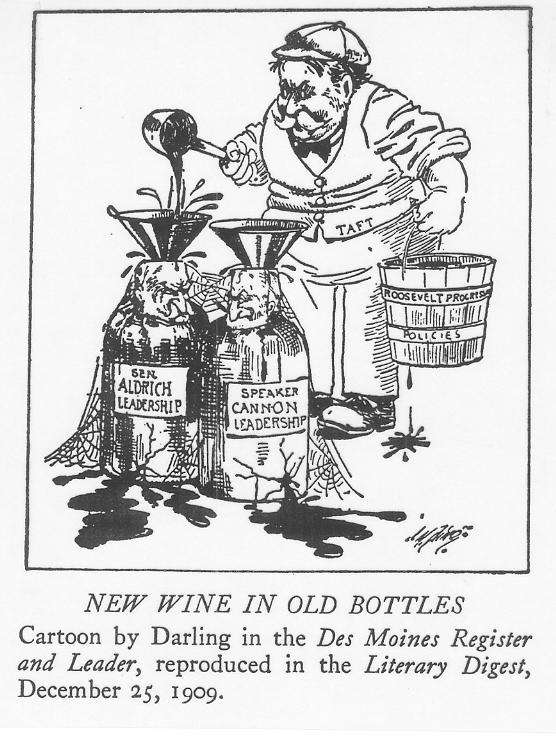
What does this cartoon say about Taft's Progressive policies?
Many government representatives were very conservative despite Taft's Progressive policies.
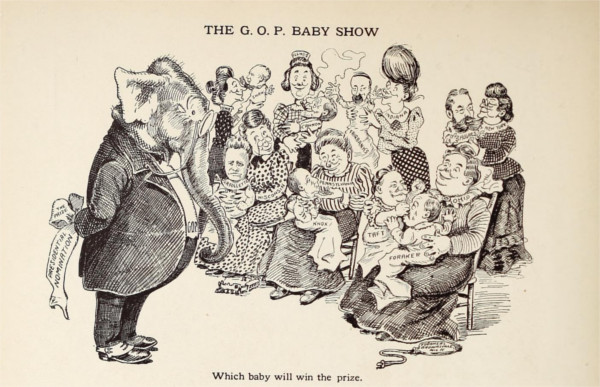
What does this cartoon say about Taft's nomination in 1908?
The Republican Party administration under Roosevelt acted paternally to select their next 'infant' candidate
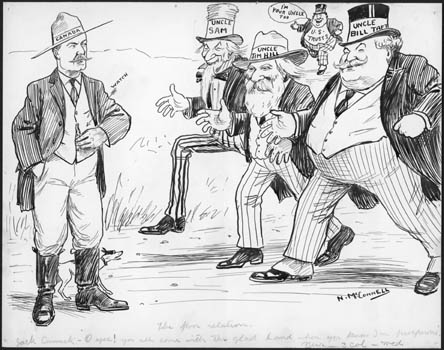
What does this cartoon say about Taft's policy with our neighbors to the north?
The Taft administration tried to exploit the rapid business growth in Canada.
|
What have you learned about Taft's early years in office? Use these questions to check your understanding.
|
Taft knew that if loans were not paid back that an _________ would occur.
|
invitation
intervention
incarceration
|
|
Taft hoped to inject more capital into unstable economies in order to __________ the local economy.
|
stimulate
assimilate
simulate
|
|
The Germans and other European countries felt that the US 'dollar diplomacy' policy was an attempt to __________ investment in foreign countries.
|
monopolize
prevent
organize
|
Complete
